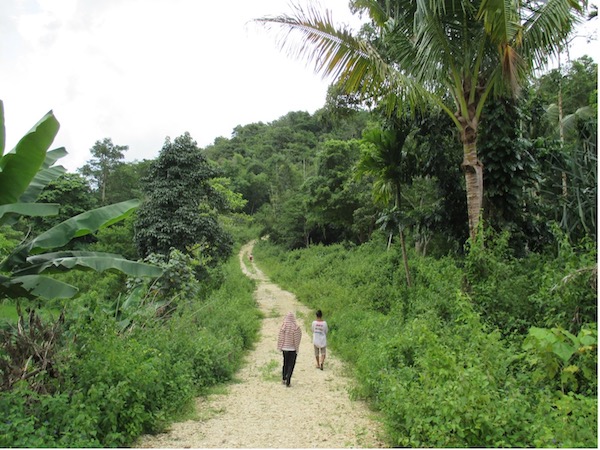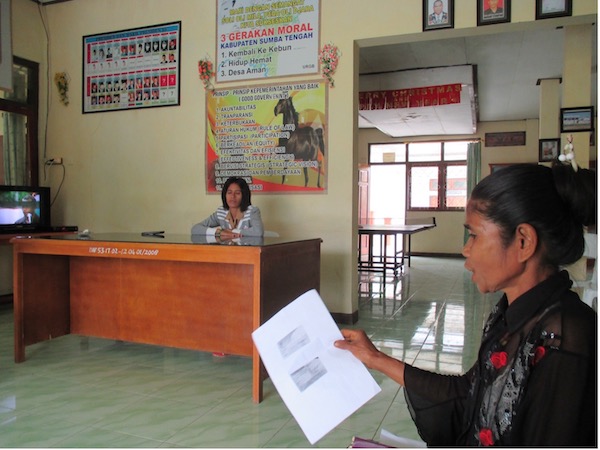Dealing with sexual violence in Indonesia calls for culturally sensitive and context-specific approaches
In April 2022, after a decade-long and complex process, the Law on Sexual Violence Crimes (Undang-Undang Tindak Pidana Kekerasan Seksual: TPKS) was finally enacted. Human rights and women's activists celebrated its adoption in the hope that this law would create momentum for structural and cultural changes related to sexual violence in Indonesia. Previously, the Indonesian Criminal Code (Kitab Undang-Undang Hukum Pidana: KUHP) and a number of other laws have regulated sexual violence with various sanctions. Proponents claim the new law is the most comprehensive available as it regulates nine types of sexual violence, ranging from sexual harassment and forced contraception to forced marriage. The new law also provides opportunities for victims to receive rehabilitation, seek restitution from perpetrators and receive compensation from the state.
Typically, the new law promotes protecting individual rights. Like its predecessors, this law has been strongly influenced by the global human rights campaign for rights-based approaches, which view women’s rights as individual rights that should be universally recognised and safeguarded. This approach raises concerns that its implementation will not match with sociocultural complexities in the everyday life of victims and perpetrators. The case of bride kidnapping in Sumba, an island in the east of Indonesia, illustrates this disconnect.
Bride kidnapping rationale
In June 2020, at a traditional market in Sumba, a woman was forcefully taken by a group of men, placed in a car, and driven off. She cried and tried to escape, but no one could (or wanted to) stop this action. A spectator recorded the moment and posted the video on the internet after which it went viral. This bride kidnapping became a nationally notorious example of cultural-based sexual violence and was framed as part of Sumbanese traditions, locally known as ‘piti maranggangu’ (freely translated as catching while meeting in public). This expression refers to taking a girl out of her accompanying group while she is in a public space, such as the village marketplace, or catching her while she is walking on a public road.

National activists and government officials were outraged and called for bans on local customs that violated women’s rights and dignity. The Minister of Women’s Empowerment and Child Protection urged the police to prosecute the suspects. Local women’s rights activists in Sumba felt strengthened by this national support – and later, by the new Law on Sexual Violence Crimes, which encouraged banning the practice and punishing the perpetrators. However, despite this widespread condemnation and although some regulation now provides the legal basis for criminal punishment, prosecution of perpetrators so far has been rare. Why is that so, and does the new law address the underlying problems that lead to such violence?
Bride kidnapping as a form of forced marriage is not an issue specific to Sumba. It happens in Kyrgyzstan, South Africa and in many other countries. For these communities, marriage goes beyond a mere individual union between a woman and a man. It is a social institution intricately shaped by the local context, including kinship, social class, beliefs, and the local political economy. In these communities, marriage serves not only as a bond between two individuals but also to establish and strengthen alliances between clans or families. It reflects the broader social fabric that extends beyond the personal level and encompasses broader communal and societal ties.
With this complexity, bride kidnapping becomes a multifaceted phenomenon. It is not just a matter of abduction of a (any) woman or girl, but also an alternative way of getting married. In Sumba, the style and reasons for bride kidnapping range across a spectrum. In some cases, it is a coercive abduction of a woman by a group of men, eventually aimed at marriage. Although such practice involves explicit force and violence, consent is an important element that can determine whether the kidnapping is socially acceptable, or not.
A question of consent
Traditionally, it is not the bride’s or groom’s consent that matters. Instead, the consent of the leaders and the two clans involved, determines legitimacy of the pairing. The resulting marriage is mainly conducted according to adat (customary) norms and principles and developed into a common style of arranged marriage. After the kidnapping, representatives from the groom’s family will typically visit the bride’s family to engage in negotiations seeking their approval for the marriage. These meetings serve as an opportunity for reconciliation, addressing the consequences of the abduction. Additionally, discussions revolve around determining the amount of bride wealth that the groom's family must pay to the bride's family as part of the marriage agreement. This process reflects the communal nature of decision-making, where the involvement and consensus of families play a crucial role in shaping the outcome and resolution of such situations.
In other cases, bride kidnapping involves the consent of the girl and the boy (and not of their parents), particularly when it concerns an elopement staged as a violent bride kidnapping. That occurs when two lovers do not want to wait until their families have reached a consensus in the wedding negotiations and finally give their approval. In such a case, the couple uses elopement as a strategy to detach themselves from their community’s adat. In such instances, bride kidnapping can be regarded as a traditionally staged performance planned by the two partners.
At the extreme end of the spectrum, there is a violent kidnapping that takes place without the aim of marriage and without any consent of either family or victim. Such a kidnapping is widely considered to be a crime that should be punished, also according to adat.
A socially accepted solution
Under the 2022 Law on Sexual Violence Crimes police are empowered to charge those responsible for bride kidnapping. It remains unclear, however, how the law will be applied in complex situations like those occurring in Sumba. Who should be held responsible in such cases where the families are themselves involved? The existing formal legal framework, which is generally based on rights-based approaches, provides limited tools to understand the intricacies of these issues, often leading to individual-focused solutions and remedies. As a result, the broader complexities and communal aspects related to cultural practices such as bride kidnapping are often overlooked and many questions remain to be answered. Is bride kidnapping a matter of repression of women’s rights and voices, or an indicator of resistance against repressing adat rules? Why are so few bride kidnapping cases reported to the police and prosecuted? Is lack of access to state justice for the victims the reason, or is it a sign of social acceptance of bride kidnapping?
This discussion is not intended to downplay the significance of the new Law on Sexual Violence Crimes. This law represents an important milestone for Indonesia in addressing sexual violence. However, it is also important for the Indonesian legal framework to start moving beyond criminalisation and a rights-based approach. It should encourage a sociocultural movement in responding to sexual violence. To achieve this, a more culturally sensitive and context-specific approach is needed to actively involve and engage the adat community and structure.

There are various ways to stimulate this collaboration. In addition to education and empowerment projects, the national and regional governments need to facilitate adat or local justice institutions to identify the spectrum of bride kidnapping and develop socially accepted norms for addressing different forms of such ‘kidnapping’. This community-generated knowledge can help government policies and actions to be more culturally sensitive and broaden the understanding of sexual violence beyond the state-centric perspective.
Culturally-sensitive pathways
In light of this social arrangement, regulations and state justice institutions should also be open to out-of-court or adat-based conflict settlements, enabling community involvement in the resolution process. Community-based conflict resolution mechanisms, rooted in local knowledge, customs, and norms can push the state's responses to sexual violence beyond a solely punitive approach. At the same time, it is vital to ensure that these alternative resolutions prioritise women's rights and well-being and avoid re-victimisation.
By adopting a culturally-sensitive and context-specific approach, a violent bride kidnapping can be considered criminal conduct according to state law as well as a violation of local norms. This will also make the legal sanctions and government response more sensitive to the communal realities and the needs of women and youth. This approach recognises the importance of community-specific practices, values, and beliefs, while ensuring the protection and well-being of victims. It enables the development of interventions and support systems that are deeply rooted in the social fabric of the community, fostering a collective effort to effectively prevent and address sexual violence.
Tody Utama (t.s.j.utama@law.leidenuniv.nl) is a PhD candidate at the Van Vollenhoven Institute at Leiden University and a lecturer at the Faculty of Law, Universitas Gadjah Mada, Indonesia. His current research focuses on the utilisation of adat (customary) law by the state government and its implications for the legal system in Indonesia. Jacqueline Vel (J.A.C.Vel@law.leidenuniv.nl) is a senior researcher at the Van Vollenhoven Institute at Leiden University, specialising in law and society in Indonesia. She has been conducting research on Sumba since 1984. Her research interests include local politics and governance, as well as customary law and agrarian change.












